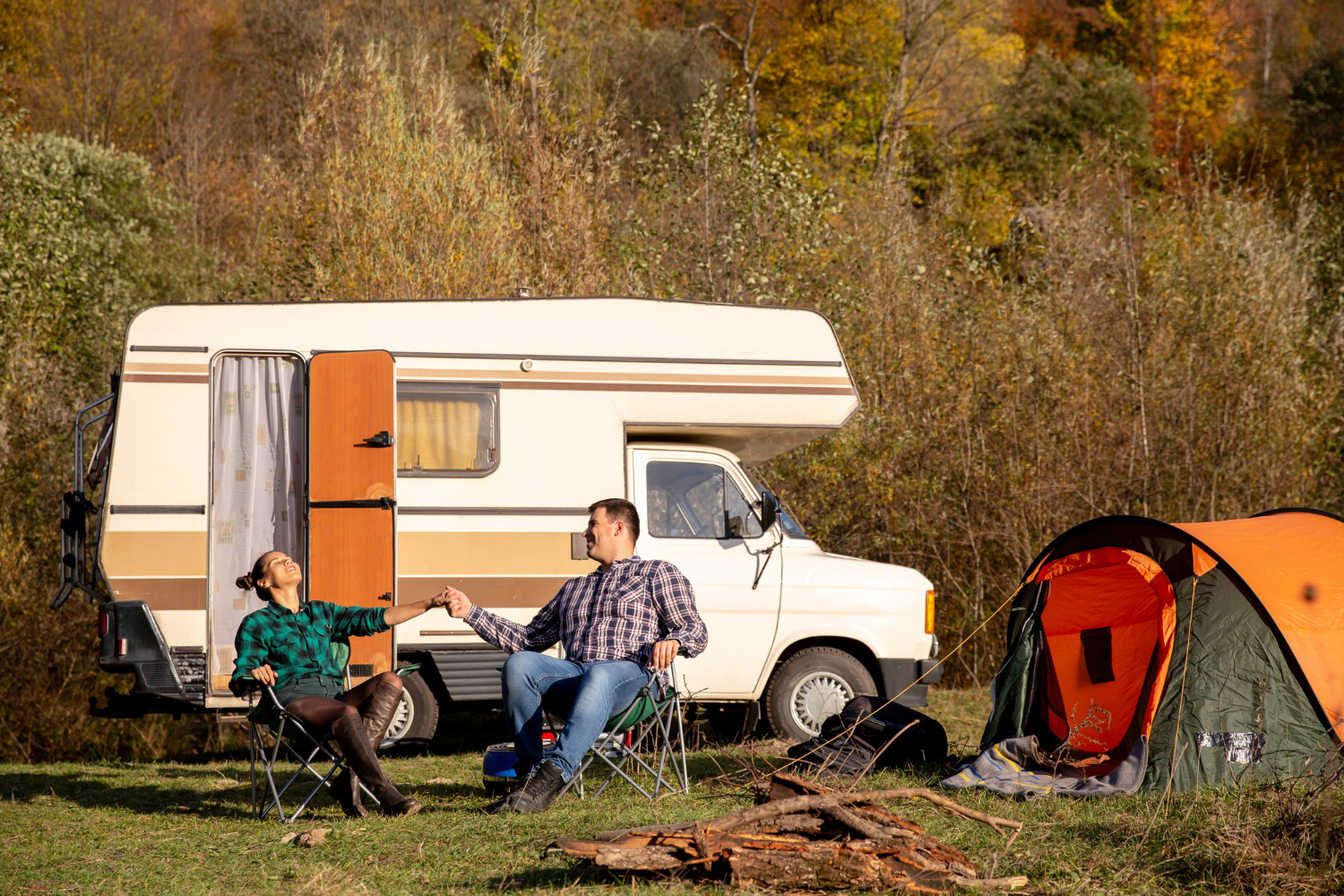Planning a road trip in your RV is one of the best ways to explore the open road with freedom and comfort. But before you hit the highway, it’s essential to understand what your RV insurance actually covers—especially when you’re far from home.
Whether you’re taking a weekend getaway or embarking on a cross-country journey, knowing what’s included (and what’s not) in your RV insurance policy can help you avoid expensive surprises and ensure you’re properly protected.
Why Road Trip Coverage Matters
An RV combines the features of both a vehicle and a home. That means the risks you face on a road trip—like accidents, theft, weather damage, or personal liability—can be more complex than with a regular car.
And not all RV insurance policies are created equal. What’s covered during everyday use might not fully protect you during long-distance travel or overnight stays at campgrounds, rest stops, or public parks.
What’s Typically Covered During an RV Road Trip
Here are the most common types of RV insurance coverage and how they protect you while traveling:
1. Liability Coverage
Covers bodily injury and property damage you cause to others while driving your RV.
-
Required in most states
-
Applies to accidents where you’re at fault
-
Usually includes legal defense if you’re sued
2. Collision Coverage
Pays for damage to your RV from a collision with another vehicle or object, regardless of fault.
-
Helpful in accidents involving other drivers, trees, fences, or guardrails
-
Deductible applies before your insurance pays
3. Comprehensive Coverage
Covers non-collision damage to your RV, such as:
-
Theft or vandalism
-
Fire
-
Falling objects
-
Weather events (hail, wind, flooding)
-
Animal collisions (e.g., deer)
4. Vacation Liability
Covers bodily injury or property damage that occurs when your RV is parked and being used as a temporary residence—like at a campsite.
-
Especially useful at RV parks and campgrounds
-
Kicks in if a guest trips in your RV or gets injured on your campsite
5. Personal Belongings Coverage
Covers damage or theft of personal property stored inside your RV.
-
Includes items like electronics, clothing, tools, and camping gear
-
May be included in your RV policy or through your homeowners/renters insurance
-
Coverage limits may apply
6. Emergency Expense Coverage
Covers travel and lodging expenses if your RV becomes unusable due to a covered loss while you’re on the road.
-
Hotel stays, transportation, meals
-
Useful during long trips far from home
What’s Usually NOT Covered During an RV Road Trip
Even comprehensive RV policies have limits. Here’s what your insurance might not cover:
1. Wear and Tear or Mechanical Breakdowns
Standard policies typically do not cover:
-
Engine failure
-
Transmission issues
-
Brake or tire wear
-
Maintenance-related repairs
For these, you may need a separate RV warranty or roadside assistance plan.
2. Full-Time RV Living
If you live in your RV full-time (typically more than 150 days per year), a standard recreational RV policy might not be enough. You’ll need full-time RV insurance, which includes additional liability and home-like coverage.
3. Unlisted Drivers
If someone not listed on your policy drives your RV and causes an accident, it may void your coverage or result in denied claims.
4. Rental or Commercial Use
Using your RV for business purposes or renting it out through a platform like Outdoorsy or RVshare? You’ll need commercial or rental coverage—not personal use insurance.
5. Unattached Trailers or Towed Vehicles
Your RV policy might not automatically cover:
-
A trailer you’re towing (e.g., for ATVs or gear)
-
A separate car or motorcycle towed behind the RV
These usually require separate policies or endorsements.
Add-On Coverages Worth Considering for Road Trips
If you’re taking a long road trip, these optional coverages can provide extra peace of mind:
-
Roadside Assistance: For breakdowns, flat tires, lockouts, fuel delivery, or towing
-
Trip Interruption Coverage: Reimburses non-refundable travel costs if your trip is cut short due to a covered incident
-
Pet Injury Coverage: Helps cover vet bills if your pet is injured in an accident
-
Full Replacement Cost Coverage: Replaces your RV with a new one if it’s totaled, rather than paying the depreciated value
Tips Before You Hit the Road
-
Review your policy: Make sure it reflects how and where you’ll be using your RV
-
Inventory your belongings: Keep a list (and photos) of personal items inside your RV in case you need to file a claim
-
Know your deductible: Understand what you’ll be responsible for paying out-of-pocket
-
Check campground rules: Some RV parks require proof of insurance or specific coverage types
Your RV insurance should travel with you—literally. Whether you’re driving across the state or across the country, understanding what your policy covers during road trips is essential to staying protected on and off the road.
Before your next adventure, take the time to review your RV insurance, explore optional coverages, and make sure you’re getting the protection you need—without paying for more than you use.

